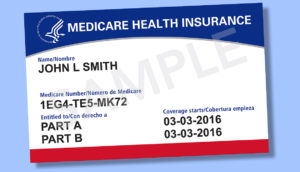 Today’s top story: Parents with student debt want a do-over. Also in the news: What you need to know about Medigap Plan G, don’t let Social Security steer you wrong, and why Millennials and Gen Zers should be investing in Roth IRAs.
Today’s top story: Parents with student debt want a do-over. Also in the news: What you need to know about Medigap Plan G, don’t let Social Security steer you wrong, and why Millennials and Gen Zers should be investing in Roth IRAs.
Parents With Student Debt Want A Do-Over
Nearly 1 in 3 parents regret their decision.
What Is Medigap Plan G? What You Need to Know
Medigap Plan G, part of Medicare Supplement Insurance, helps cover additional costs not met by Original Medicare.
Don’t Let Social Security Steer You Wrong
When to claim benefits is a complex decision. Don’t rely on the help line staff, and consider getting a pro’s help.
Why Millennials and Gen Zers Should Be Investing in Roth IRAs
Minimize your tax exposure while taking advantage of compound interest.
 Today’s top story: How to negotiate your way to a richer life. Also in the news: 4 signs we’re in a housing market primed for regret, Medicare and CPAP supplies, and could your health or life insurance rates increase if you’re not vaccinated?
Today’s top story: How to negotiate your way to a richer life. Also in the news: 4 signs we’re in a housing market primed for regret, Medicare and CPAP supplies, and could your health or life insurance rates increase if you’re not vaccinated? Today’s top story: Smart strategies for fighting back against inflation. Also in the news: Easing into credit cards with a simple cash-back card, Medicare and dental implants, and these 6 psychological biases may be holding you back from building wealth.
Today’s top story: Smart strategies for fighting back against inflation. Also in the news: Easing into credit cards with a simple cash-back card, Medicare and dental implants, and these 6 psychological biases may be holding you back from building wealth.